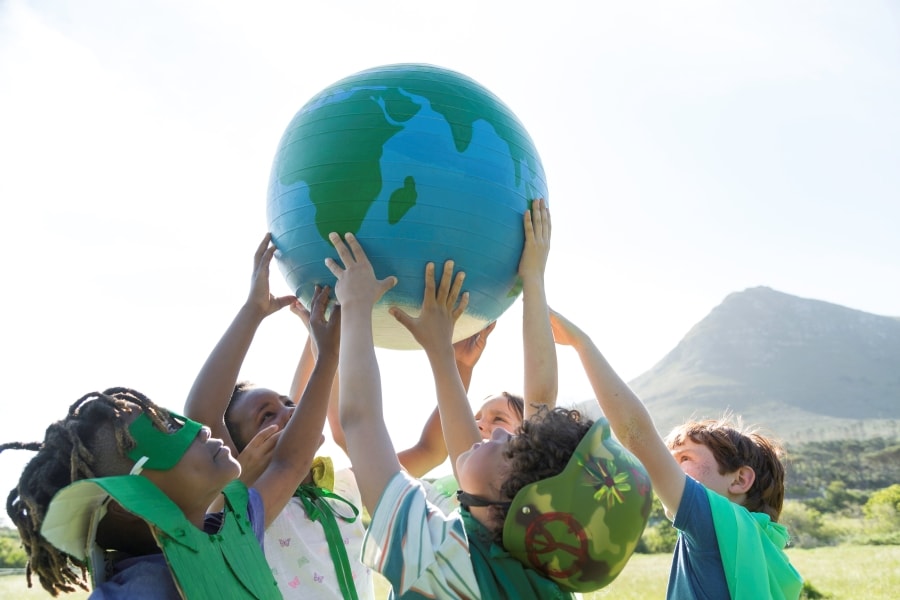Graduated with a bachelor’s degree from the College of Arts and Science at the University of Tokyo and obtained a PhD from the Graduate School of Arts and Sciences at the University of Tokyo. Has worked at the National Institute for Environmental Studies since 1997. Deputy Director of the Earth System Division and visiting professor in Multidisciplinary Sciences at the Graduate School of Arts and Sciences at the University of Tokyo. Specializes in future projections and risk studies regarding global warming. Lead author on the Intergovernmental Panel on Climate Change (IPCC)’s Fifth Assessment Report and Sixth Assessment Report.
Climate scientist Seita Emori: "I hope the IPCC report changes global understanding of climate change."
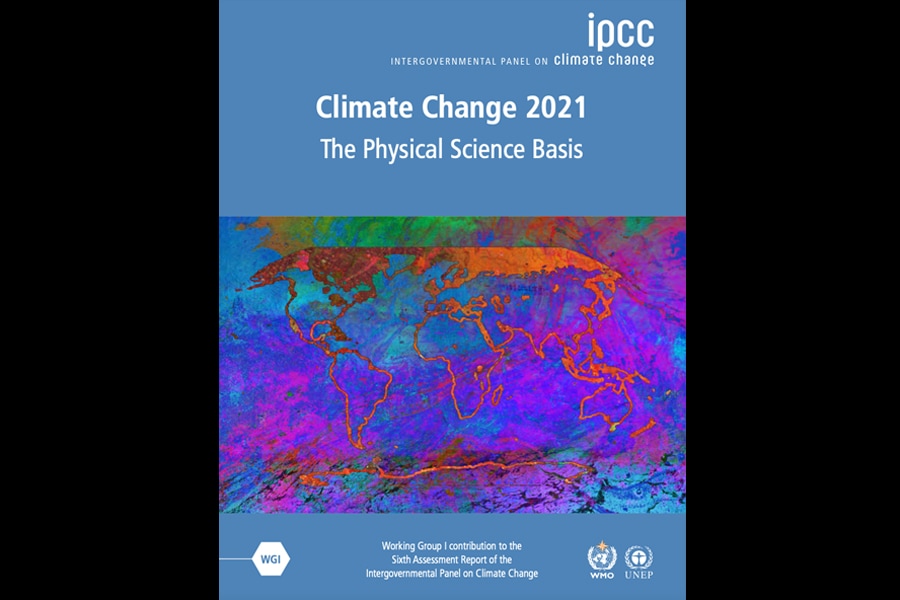
In August 2021, the UN’s Intergovernmental Panel on Climate Change (IPCC), which brings together scientists from all over the world, published an excerpt of its Sixth Assessment Report. The IPCC is an international organization that scientifically assesses the current state of climate change, makes predictions as to the future of climate change, and proposes measures to tackle climate change. The report—the first in eight years—has sent shockwaves around the globe because this was the first time that the IPCC made the determination that global warming is caused by human activity.
So what is the situation with climate change? To answer this, Seita Emori, who works at the National Institute for Environmental Studies and who is one of the report’s authors, explained the state of climate change, the climate events that could occur in the future, and the measures that are required to counteract climate change.
Humans causing climate change

--What is the purpose of the IPCC’s reports?
Emori: Governments from around the world meet for international negotiations on climate change measures at the Conference of the Parties (COP) to the United Nations Framework Convention on Climate Change (UNFCCC), held annually. As there is a divergent scientific understanding of climate change among nations, negotiations cannot move forward, which is where the IPCC reports come into play. The reports form the basis for giving countries a common understanding of climate change.
In order to collect the latest scientific knowledge on climate change, scientists in the trenches of climate change research from around the globe participate in the creation of the IPCC reports. Over 200 authors from 66 countries were chosen to collaborate as part of the First Working Group for the Sixth Assessment Report.
The summary of the report is agreed to line-by-line by each government representative, completing the creation process. Thus, IPCC reports are a compilation of the latest scientific knowledge on climate change approved by all UN member states.
--What is the current state of climate change as published in the newest IPCC report?
Emori: The most-important finding stated in the new report is that the current average global temperature is 1.09 °C higher than pre-industrial levels (the average of temperatures from 1850 to 1900), and the report concludes that the reason for this temperature rise is unequivocally due to the influence of human activity.
The report also outlines abnormal weather (extreme events) with changes to rainfall worldwide and an increase in heavy precipitation events. Furthermore, the report also indicates that extreme heatwaves will increase across the globe, as will droughts and wildfires have fueled by dry organic matter. Ocean water temperatures and levels will also increase, and ice caps will decrease.
While these findings have been noted in previous reports, this report made this situation clearer.
Abnormal weather events expected to increase globally
--Is it correct to say that record heatwaves and the disastrous heavy rain occurring in Japan are caused by global warming?
Emori: Atmospheric pressure patterns due to abnormal weather events have been occurring for a long time, so it cannot be said that the cause is global warming. However, it is believed that the rise in temperature due to global warming is strengthening abnormal weather events.
For example, when atmospheric pressure patterns due to heatwaves occur, the temperature rises by the same amount that warming has increased by. Moreover, if the temperature rises, the amount of seawater evaporation also increases, resulting in greater rainfall.
It is not known for certain yet if weather conditions brought about by abnormal weather events are increasing as a result of global warming. However, we are certain that individual abnormal weather events are strengthened by warming resulting in the increase in record heatwaves and heavy precipitation.
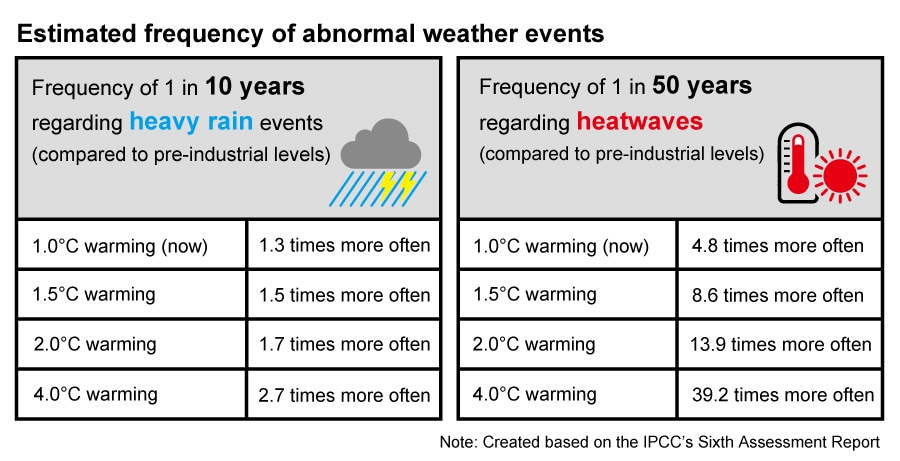
--If global warming continues, what will the climate look like in the future?
Emori: If the temperature rises further, the amount of water evaporation will increase worldwide, resulting in an increase in rainfall. Simply put, it is believed that the water cycle will intensify across the globe. Moving forward, it is estimated that the frequency of extreme precipitation that causes flooding will increase globally.
Wildfires and droughts caused by rising temperatures will also undoubtedly continue to increase. Although a rise in ocean water temperatures and levels, a decrease in ice caps, and other events are already occurring, the pace of these events will likely accelerate.
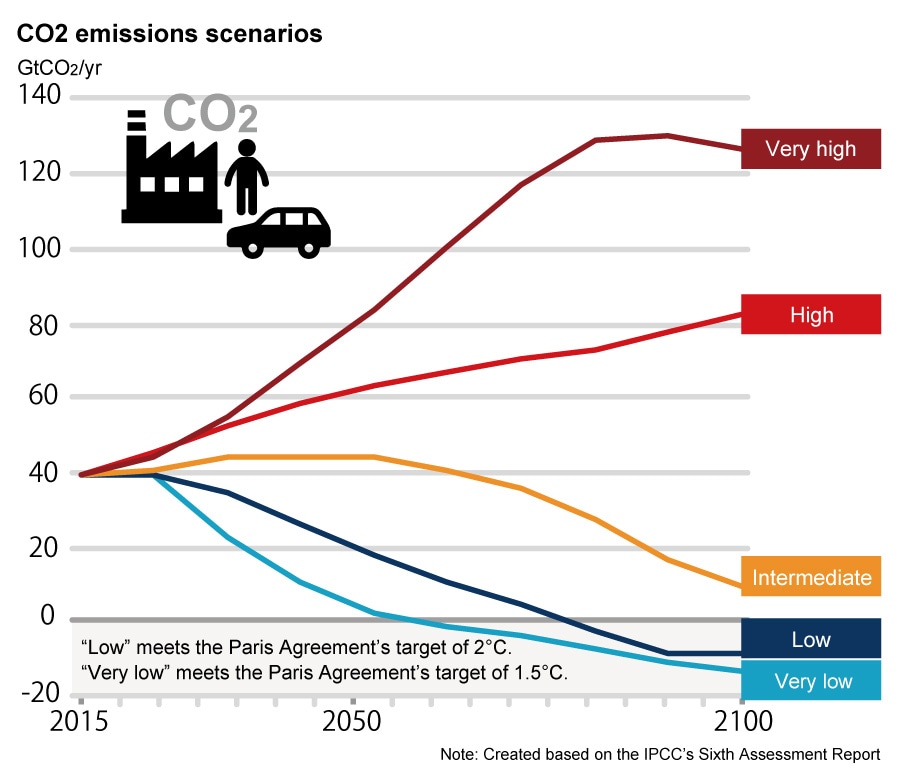
--The IPCC report establishes five scenarios, such as “High” and “Low,” that estimate greenhouse gas emissions. Which scenario is the closest to the current-day level of emissions for the major greenhouse gas CO2?
Emori: The First Working Group of the IPCC did not establish the feasibility of each scenario, so I cannot give you an accurate answer to your question. But looking at the extension of current warming countermeasures and greenhouse gas reduction targets announced by various countries, we believe that the intermediate scenario is closest to the current situation. It is not correct, at least not yet, to say that the paths of the “Very low” or “Low” scenarios are being followed.
This report points out with a probability of at least 50% that the average global temperature will rise by 1.5°C or more compared to pre-industrial levels between 2021 and 2040.
The more that emissions of greenhouse gases increase, the greater the probability that the temperature will rise, but this report concludes that even the scenario with the lowest emissions, the “Very low” scenario, will reach a temperature rise of 1.5°C with a probability of about 50%.
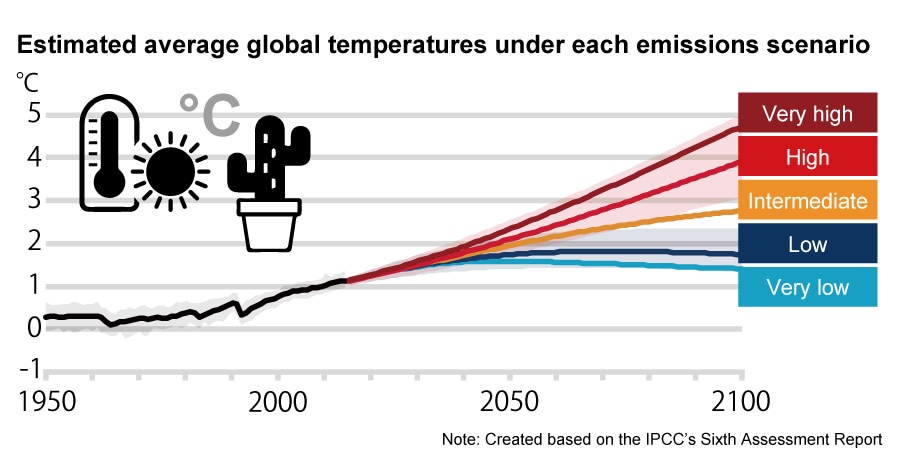
Measures that governments and corporations must enact
--What measures to tackle global warming should be expected of governments?
Emori: Many developed countries have pledged to become carbon neutral by 2050, with some even pledging carbon neutrality by 2045. Japan has also pledged the goal of having net-zero emissions of greenhouse gases by 2050. To achieve this goal, governments must first, at a bare minimum, implement a specific set of measures.
However, even if they do this, it is estimated that worldwide emissions will only be equivalent to the intermediate scenario because many emerging powers and developing countries are not represented in a scenario in which nations decarbonize by 2050.
For developing countries, industrializing and developing their economies is a critical future challenge. If only developed countries achieve decarbonization, developing countries will continue to emit greenhouse gases, and the world as a whole cannot achieve carbon neutrality (net-zero emissions of greenhouse gases).
The question is: How much can developing countries decarbonize while developing their economies? Undoubtedly advanced nations must push them to decarbonize. If advanced nations provide developing nations with technologies and capital, for instance, then it is likely that developing nations can move toward carbon neutrality.
Alternatively, it is possible that developing countries can be given some leeway on their greenhouse gas emissions and that developed countries can achieve carbon neutrality before 2050. It cannot be said that Japan is playing its role if it alone achieves carbon neutrality by 2050.
--What actions must corporations take?
Emori: The goalposts have shifted from “low” carbon to “no” carbon, and the time has come for all corporations to aim for carbon neutrality. This is now an era in which corporations should think about whether they can continue with business as usual when a world of zero greenhouse gas emissions is realized.
If a corporation believes that it cannot conduct business in a zero-emissions world, it must significantly change its business model. This is not easy, and it might not be successful. This decision will require a great deal of courage, but there is no doubt that many corporations will have to make significant changes.
--COP26 will start in a few days in Glasgow, U.K. What do you expect from COP26?
Emori: I expect that the understanding of people from all over the world regarding climate change will significantly change, thanks to discussions based on the latest IPCC report. This should be a good chance to widely inform people that the current reduction targets and initiatives pledged by most nations are not on path to limit the rise in temperature to less than 1.5°C.
Although most developed countries have pledged a goal of carbon neutrality by 2050, that alone is not enough. All countries, including emerging powers and developing countries and not just developed countries, must finally start to get serious about decarbonization.
It is vital to not only tackle in-depth the issue of countries going back on their reduction targets but also the issue of support and capital for developing countries. And hopefully, this conference will be one in which all countries can gain a greater understanding of the need to decarbonize and an opportunity to strengthen climate change action.
Seita Emori

